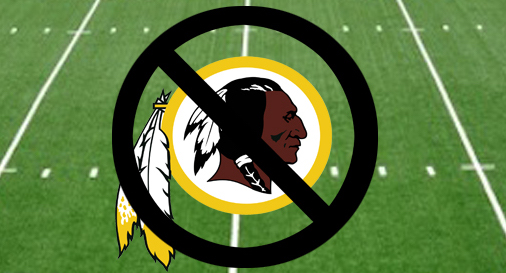
- Details
- By Native News Online Staff
WASHINGTON — Reaction was swift after Monday’s announcement by the Washington NFL franchise that it was dropping the racist name it has held for 87 years.
The retirement of the team’s name is historic because it comes after decades by American Indians calling for a name change.
Native News Online received statements and reactions from tribal leaders and advocates from around the country. Here are a few of the reactions:
NCAI: “We are not mascots—we are Native people”
The National Congress of American Indians said Monday’s announcement was cause for celebration: "Today is a day for all Native people to celebrate. We thank the generations of tribal nations, leaders, and activists who worked for decades to make this day possible…We are not mascots -- we are Native people, citizens of more than 500 tribal nations who have stood strong for millennia and overcome countless challenges to reach this pivotal moment in time when we can help transform America into the just, equitable, and compassionate country our children deserve."
Olympic Gold-medalist Billy Mills: “It’s never too late to do the right thing”
Billy Mills (Oglala Lakota), who won an Olympic Gold medal in the 10,000-meter run at the 1964 Olympics in Tokyo said of the team’s name change: “It’s never too late to do the right thing. Now I urge the Washington football team to truly turn the page, and pick a new name and logo with no exploitation of Native people. They are on the verge of righting a historic wrong. What they do next will define this team’s legacy.”
Navajo Nation leaders recommends renaming the team “Code Talkers”
Monday’s announcement did not include a new name, though team owner Dan Snyder said the were working on one.
In a statement issued by the Office of President and Vice President of the Navajo Nation, President Jonathan Nez and Vice President Myron Lizer weighed in with this recommendation: “We strongly encourage the NFL Washington organization to rename their team in such a way that truly honors and respects the First Americans of this country. Renaming the team “Code Talkers” to honor the Navajo Code Talkers, and other tribal nations who used their sacred language to help win World War II, would set the team on a path to restoring its reputation and correcting the historical misrepresentation of Indigenous peoples.”
Sen. Udall: “Nation’s capital football team should not play under banner of racist name”
U.S. Senator Tom Udall (D-NM), vice chairman of the U.S. Senate Committee on Indian Affairs said he is glad the team finally reckoned with the hurtful truth about its name. Udall said: “The football team that represents the nation’s capital should not play under the banner of a racist name that denigrates Native Americans and runs contrary to the ideals that our nation strives to uphold. I am glad that the Washington football team has finally reckoned with the hurtful truth about its name, and I urge the team to listen to and include Native voices as it considers a new name.”
USET Sovereignty Protection Fund: “The deeper meaning of the word represents the systematic genocide”
USET Sovereignty Protection Fund, a non-profit, inter-tribal organization advocating on behalf of thirty (30) federally recognized tribal nations from the Northeastern Woodlands to the Everglades and across the Gulf of Mexico said: “While the origins and meaning of the name have often been debated, the plain language use of the word is problematic enough, and would not have been tolerated for any other group in this day and age. For Indigenous people, the deeper meaning of the word represents the systematic genocide of our ancestors that served as a tool to clear the way for American growth and prosperity. It is reminiscent of centuries of coordinated efforts to exterminate our people and cultures.”
More Stories Like This
Native News Weekly (August 25, 2024): D.C. BriefsDeb Haaland Earns Endorsement From Communications Workers of America Local 7076
University Soccer Standout Leads by Example
Two Native Americans Named to Democratic Congressional Campaign Committee's“Red to Blue” Program
Cheyenne River Youth Project Hosts Young Women’s Winter Camp as Part of Lakota Culture Internship
Help us defend tribal sovereignty.
At Native News Online, our mission is rooted in telling the stories that strengthen sovereignty and uplift Indigenous voices — not just at year’s end, but every single day.
Because of your generosity last year, we were able to keep our reporters on the ground in tribal communities, at national gatherings and in the halls of Congress — covering the issues that matter most to Indian Country: sovereignty, culture, education, health and economic opportunity.
That support sustained us through a tough year in 2025. Now, as we look to the year ahead, we need your help right now to ensure warrior journalism remains strong — reporting that defends tribal sovereignty, amplifies Native truth, and holds power accountable.
 The stakes couldn't be higher. Your support keeps Native voices heard, Native stories told and Native sovereignty defended.
The stakes couldn't be higher. Your support keeps Native voices heard, Native stories told and Native sovereignty defended.
Stand with Warrior Journalism today.
Levi Rickert (Potawatomi), Editor & Publisher

